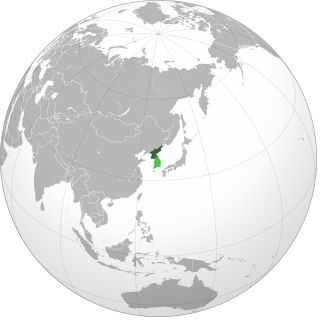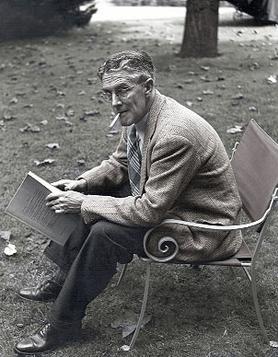Related Research Articles

The International Atomic Energy Agency (IAEA) is an intergovernmental organization that seeks to promote the peaceful use of nuclear energy and to inhibit its use for any military purpose, including nuclear weapons. It was established in 1957 as an autonomous organization within the United Nations system; though governed by its own founding treaty, the organization reports to both the General Assembly and the Security Council of the United Nations, and is headquartered at the UN Office at Vienna, Austria.

A nuclear weapon is an explosive device that derives its destructive force from nuclear reactions, either fission or a combination of fission and fusion reactions, producing a nuclear explosion. Both bomb types release large quantities of energy from relatively small amounts of matter.

The Treaty on the Non-Proliferation of Nuclear Weapons, commonly known as the Non-Proliferation Treaty or NPT, is an international treaty intended to prevent the spread of nuclear weapons and weapons technology, to promote cooperation in the peaceful uses of nuclear energy, and to further the goal of achieving nuclear disarmament. Between 1965 and 1968, the treaty was negotiated by the Eighteen Nation Committee on Disarmament, a United Nations-sponsored organization based in Geneva, Switzerland. A central premise of the NPT is that NPT non-nuclear-weapon states agree not to acquire nuclear weapons and the NPT nuclear-weapon states in exchange agree to share the benefits of peaceful nuclear technology.

Nuclear proliferation is the spread of nuclear weapons, fissionable material, and weapons-applicable nuclear technology and information to nations not recognized as "Nuclear Weapon States" by the Treaty on the Non-Proliferation of Nuclear Weapons, commonly known as the Non-Proliferation Treaty or NPT. Proliferation has been opposed by many nations with and without nuclear weapons, as governments fear that more countries with nuclear weapons will increase the possibility of nuclear warfare, de-stabilize international or regional relations, or infringe upon the national sovereignty of nation states.
Enriched uranium is a type of uranium in which the percent composition of uranium-235 has been increased through the process of isotope separation. Naturally occurring uranium is composed of three major isotopes: uranium-238, uranium-235, and uranium-234. 235U is the only nuclide existing in nature that is fissile with thermal neutrons.
Arms control is a term for international restrictions upon the development, production, stockpiling, proliferation and usage of small arms, conventional weapons, and weapons of mass destruction. Historically, arms control may apply to melee weapons before the invention of firearm. Arms control is typically exercised through the use of diplomacy which seeks to impose such limitations upon consenting participants through international treaties and agreements, although it may also comprise efforts by a nation or group of nations to enforce limitations upon a non-consenting country.

North Korea has a military nuclear weapons program and, as of 2024, is estimated to have an arsenal of approximately 50 nuclear weapons and sufficient production of fissile material for six to seven nuclear weapons per year. North Korea has also stockpiled a significant quantity of chemical and biological weapons. In 2003, North Korea withdrew from the Treaty on the Non-Proliferation of Nuclear Weapons (NPT). Since 2006, the country has conducted six nuclear tests at increasing levels of expertise, prompting the imposition of sanctions.

Nuclear terrorism refers to any person or persons detonating a nuclear weapon as an act of terrorism. Some definitions of nuclear terrorism include the sabotage of a nuclear facility and/or the detonation of a radiological device, colloquially termed a dirty bomb, but consensus is lacking. In legal terms, nuclear terrorism is an offense committed if a person unlawfully and intentionally "uses in any way radioactive material … with the intent to cause death or serious bodily injury; or with the intent to cause substantial damage to property or to the environment; or with the intent to compel a natural or legal person, an international organization or a State to do or refrain from doing an act", according to the 2005 United Nations International Convention for the Suppression of Acts of Nuclear Terrorism.

A breeder reactor is a nuclear reactor that generates more fissile material than it consumes. These reactors can be fueled with more-commonly available isotopes of uranium and thorium, such as uranium-238 and thorium-232, as opposed to the rare uranium-235 which is used in conventional reactors. These materials are called fertile materials since they can be bred into fuel by these breeder reactors.

Henry DeWolf "Harry" Smyth was an American physicist, diplomat, and bureaucrat. He played a number of key roles in the early development of nuclear energy, as a participant in the Manhattan Project, a member of the U.S. Atomic Energy Commission (AEC), and U.S. ambassador to the International Atomic Energy Agency (IAEA).
The Fissile Material Cutoff Treaty (FMCT) is a proposed international treaty to prohibit the further production of fissile material for nuclear weapons or other explosive devices. The treaty has not been negotiated and its terms remain to be defined. According to a proposal by the United States, fissile material includes high-enriched uranium and plutonium. According to a proposal by Russia, fissile material would be limited to weapons-grade uranium and plutonium. Neither proposal would prohibit the production of fissile material for non-weapons purposes, including use in civil or naval nuclear reactors.
Uranium-233 is a fissile isotope of uranium that is bred from thorium-232 as part of the thorium fuel cycle. Uranium-233 was investigated for use in nuclear weapons and as a reactor fuel. It has been used successfully in experimental nuclear reactors and has been proposed for much wider use as a nuclear fuel. It has a half-life of 160,000 years.

Weapons-grade nuclear material is any fissionable nuclear material that is pure enough to make a nuclear weapon and has properties that make it particularly suitable for nuclear weapons use. Plutonium and uranium in grades normally used in nuclear weapons are the most common examples.
Reactor-grade plutonium (RGPu) is the isotopic grade of plutonium that is found in spent nuclear fuel after the uranium-235 primary fuel that a nuclear power reactor uses has burnt up. The uranium-238 from which most of the plutonium isotopes derive by neutron capture is found along with the U-235 in the low enriched uranium fuel of civilian reactors.
Frank N. von Hippel is an American physicist. He is Professor and Co-Director of Program on Science and Global Security at Princeton University and the Princeton School of Public and International Affairs.

Mycle Schneider is a German nuclear energy consultant and anti-nuclear activist based in Paris. He is the lead author of The World Nuclear Industry Status Reports. He has advised members of the European Parliament on energy issues for more than twenty years. In 1997 he received the Right Livelihood Award.

Abdul Hameed Nayyar, also known as A.H. Nayyar, is a Pakistani physicist, author, and a freelance consultant on the issues of education, nuclear safety, and energy. His field of specialization is in the physics of condensed matter, and served in the faculties of the Quaid-e-Azam University in Islamabad from 1973 till 2005 and the Lahore University of Management Sciences. Nayyar is known for voicing for education reforms and military arms control, which he directed research programs at the Sustainable Development Policy Institute in Islamabad. He is also one of the founding members of The Black Hole, an intellectual space in Islamabad, Pakistan.
M. V. Ramana is professor and Simons Chair in Disarmament, Global and Human Security at the University of British Columbia, and Director of the Liu Institute for Global Issues, at the School of Public Policy and Global Affairs. A physicist by training, he previously worked at the Nuclear Futures Laboratory and the Program on Science and Global Security, both at Princeton University. Ramana is a member of the International Panel on Fissile Materials, the Canadian Pugwash Group, the International Nuclear Risk Assessment Group, and the team that produces the annual World Nuclear Industry Status Report.
Ramamurti Rajaraman is an emeritus professor of theoretical physics at the School of Physical Sciences at Jawaharlal Nehru University. He was also the co-Chairman of the International Panel on Fissile Materials and a member of the Bulletin of the Atomic Scientists' Science and Security Board. He has taught and conducted research in physics at the Indian Institute of Science, the Institute for Advanced Study at Princeton, and as a visiting professor at Stanford, Harvard, MIT, and elsewhere. He received his doctorate in theoretical physics in 1963 from Cornell University. In addition to his physics publications, Rajaraman has written widely on topics including fissile material production in India and Pakistan and the radiological effects of nuclear weapon accidents.
A number of countries and international bodies have imposed international sanctions against North Korea. Currently, many sanctions are concerned with North Korea's nuclear weapons programme and were imposed after its first nuclear test in 2006.
References
- 1 2 "About IPFM - International Panel on Fissile Materials". IPFM. 28 July 2016. Retrieved 1 April 2019.
- 1 2 International Panel on Fissile Materials (IPFM) Archived 29 June 2017 at the Wayback Machine , Princeton University.
- ↑ "Members". International Panel on Fissile Materials. 3 August 2016. Retrieved 1 April 2019.